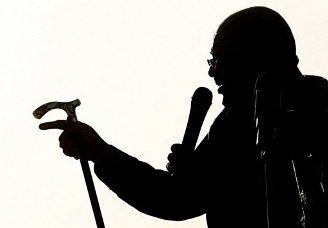Sudan’s ruling party showing fresh signs of rebellion against Bashir
October 5, 2013 (KHARTOUM) – Several figures within Sudan’s ruling National Congress Party (NCP) who signed a memo last week calling for the cancellation of recent cuts in subsidies and an end to the bloody crackdown on protesters, refused to appear before a commission of inquiry formed by the party.

The memo, which was sent to president Omer Hassan Al-Bashir and initially signed by 31 NCP members, criticised the government’s decision to remove subsidies on fuel and other basic commodities, saying it “harshly” impacted on Sudanese citizens.
The signatories, who included former presidential adviser Ghazi Salah Al-Deen Al-Attabani and MP Aisha Al-Ghabashawi, said parliament had not been consulted over the latest economic measures, which were opposed by sections of the NCP.
“Alternatives [to lifting subsidies] were proposed by individuals, experts and political forces but the substitutes were given no consideration and the government insisted on implementing the measures as they are indifferent to their impact and the extent of citizens’ ability to endure them”, said the memo.
The head of the NCP organisational sector, Hamid Sideeg, announced on Friday that his party has formed a committee chaired by national assembly speaker Ibrahim Al-Tahir to query those whose names appeared in the petition that was circulated publicly.
Reliable sources told Sudan Tribune that Ghazi, Ghabashawi and several other signatories refused to appear before the party’s commission of inquiry, pointing that out that the body has no legal basis.
The same sources asserted that the group, known for their reformist agenda, would step up its rhetoric against the party’s dominant group if it continued to implement policies harmful to the Islamic Movement (IM), which is considered the ideological arm of the NCP.
Sources close to Al-Attabani denied rumours that he has been detained or put under house arrest, citing a social visit he made to the Naima area in White Nile state on Friday before returning to his home in Khartoum North.
Disputes within the NCP escalated against the background of divergent positions on the public protests which have lasted for two weeks.
One senior source told Sudan Tribune that a meeting at the NCP’s leadership office last Thursday saw a sharp confrontation between president Bashir and three of the memo’s signatories.
The source said that Al-Attabani and Ghabashawi had outlined the reformists’ vision and criticised the government’s economic measures, as well as its response to the protests, calling for a reversal of recent cuts in subsidies and more political freedoms.
Al-Attabani responded to claims by Bashir’s that the government is intending to approve a new constitution which allows political pluralism, saying the problem is that the NCP has little appetite to play by the rules.
He added that past experience clearly showed that the NCP did not respect the constitution which was drafted and approved by its own institutions, saying that if the government had respected the constitution it could have prevented the war in South Kordofan and Blue Nile states.
The ex-head of the NCP parliamentary caucus further stressed that government institutions should abide by the laws as outlined in the constitution and take tougher action to fight corruption.
One of the memo signatories, Fadl Ahmed Abdullah, told the UAE-based Sky News Arabia that they reject Bashir’s probe and described al-Tahir as “part of the problem”, saying he is not qualified to stand on the committee.
The spokesperson for NCP reformists, Abdel-Ghani Ahmed Idris, told Sudan Tribune from his residence in London that the party is no longer governed by rules and regulations but the “gun”, adding that the party’s institutions function only to implement the decisions of the dominant group.
He added that it has become clear that the NCP is “unreformable”, hinting to a possible split from it.
The first split within the NCP took place in 1999 following a bitter power struggle between Bashir and Islamist leader Hassan Al-Turabi, with the latter subsequently ousted from his post as parliament speaker.
Al-Turabi later established the Popular Congress Party (PCP) and has since been a vociferous critic of the very regime for which he orchestrated the army-backed seizure of power in 1989.
(ST)
